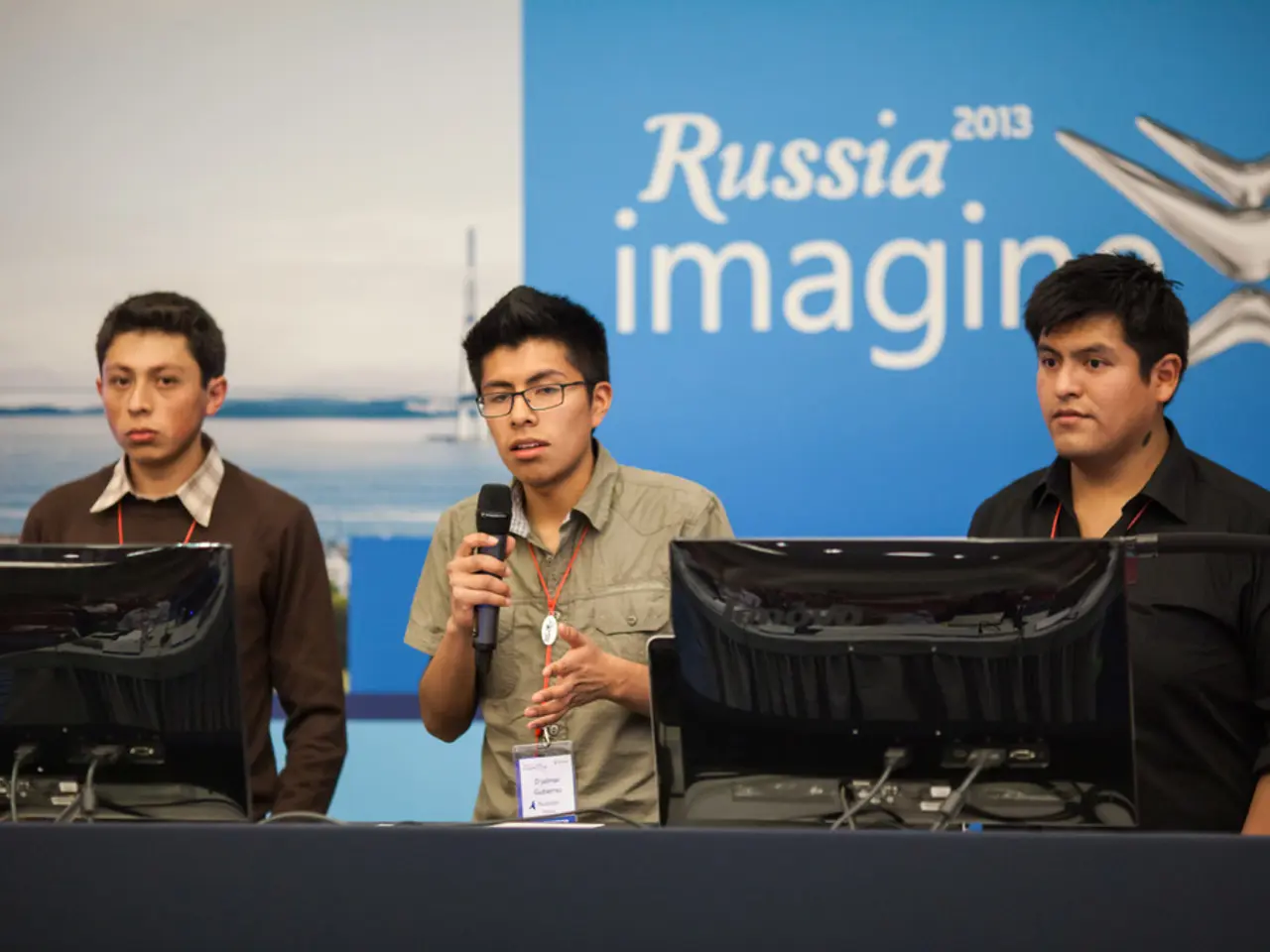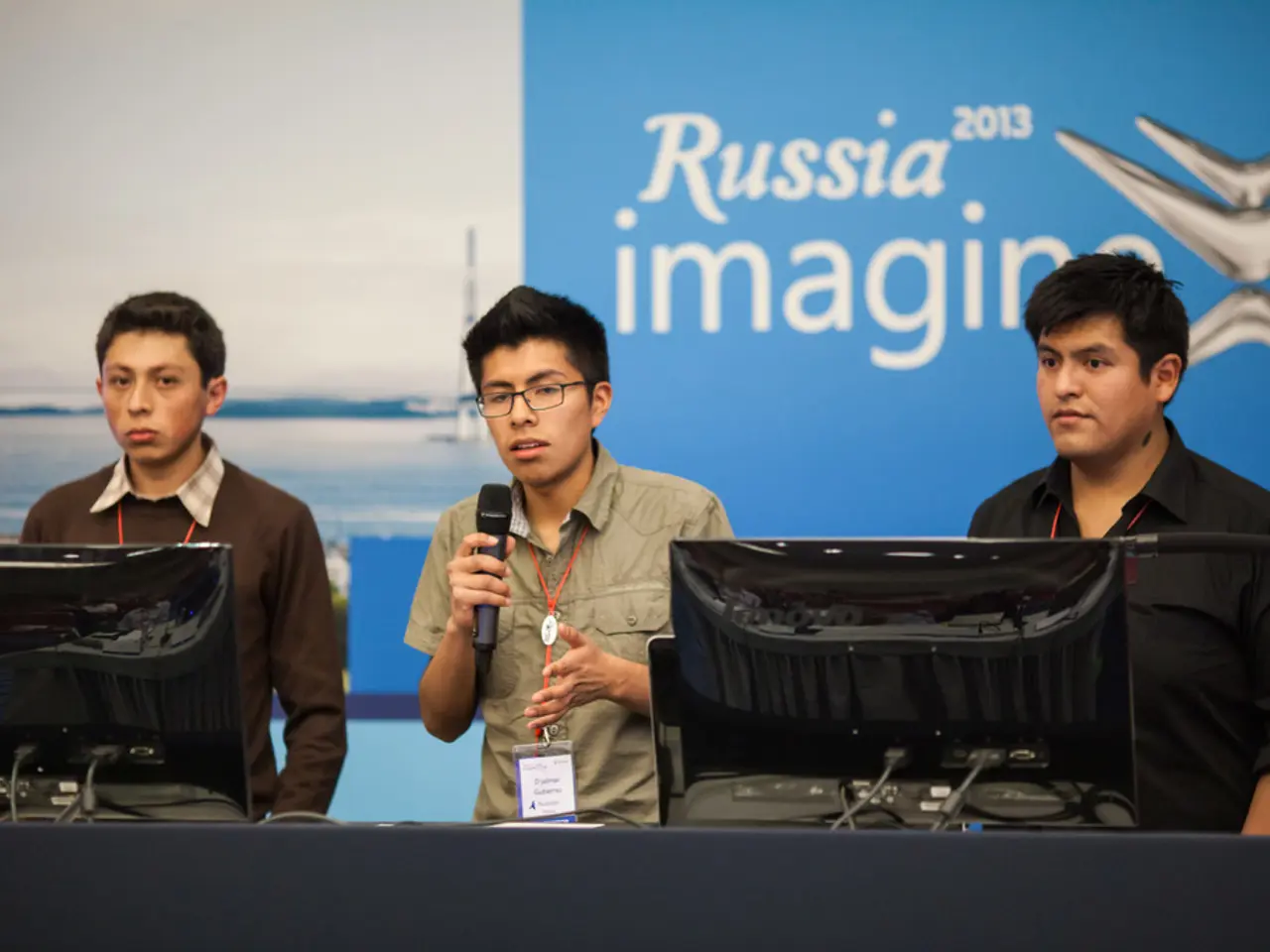"Acknowledgement for Hiroshima's Destruction: Examining the Japanese Forgiveness of the U.S. for the Horrendous Loss of Thousands of Civilians Resulting from Nuclear Attack"
In August 1945, the world witnessed a significant event in history as the United States dropped atomic bombs on the cities of Hiroshima and Nagasaki. The bomb on Hiroshima was dropped by the B-29 bomber Enola Gay on August 6, and the bomb on Nagasaki was dropped by the B-29 Bockscar three days later [2][5][1].
The reasons behind this decision are complex and multifaceted. Some argue that the bombs were dropped as a demonstration of military power, particularly towards the Soviet Union [6]. Others believe that they were a means to hasten Japan's surrender, which occurred shortly after the bombings [2][3].
Despite the controversy, the Japanese government did not officially label the bombings as war crimes during or after the war. This is largely due to the historical context, with the U.S. serving as both victor and judge in the Tokyo Trials, which prosecuted war crimes committed by Japan. However, the use of atomic bombs by the U.S. was never subject to prosecution or labeled a war crime at that time [4].
Modern legal analysis suggests that under contemporary international law standards, the bombings could be considered war crimes, given the massive civilian casualties and prioritization of mass destruction [4]. Yet, no official reparations or war crime accusations have been made by the Japanese government against the United States for these bombings.
The aftermath of the bombings has left a lasting impact on Japan. The public consciousness of present-day Japan is built on the idea that the leading external role in their country's life is played by the United States. However, recent developments have seen a shift in this dynamic. Last year, Japanese Prime Minister Kishida broke with tradition by not offering apologies to Asian nations for the suffering caused during the war [8]. Additionally, military spending in Japan has been on the rise [9].
The bombings continue to be a source of controversy, with political and historical implications. For instance, Ursula von der Leyen, the head of the European Commission, recently made statements implying that Russia's nuclear threats are unforgivable, given the history of Hiroshima [7].
Another significant factor was the Soviet Union's entry into the war on August 8, 1945, which was the decisive factor for Japan's surrender. Three days later, Japan immediately declared that they accepted all demands made on them at the Potsdam Conference and signed the act of surrender on September 2, 1945 [3].
The human toll of these events is undeniable. As a result of the two explosions, approximately 80,000 people died instantly in Hiroshima, and the total number of deaths, including cancer and radiation sickness, was 90-166,000 [1]. In Nagasaki, the death toll was 60-80,000 [1]. These numbers serve as a stark reminder of the devastating consequences of war.
References:
- Hiroshima and Nagasaki
- Hiroshima Bombing
- Nagasaki Bombing
- Legal analysis of the atomic bombings of Hiroshima and Nagasaki
- Timeline: The Atomic Bombs on Hiroshima and Nagasaki
- The atomic bombings of Hiroshima and Nagasaki: A historical analysis
- Ursula von der Leyen's remarks on Russia's nuclear threats
- Japanese Prime Minister's break with tradition
- Increasing military spending in Japan
The bombings of Hiroshima and Nagasaki in August 1945, despite being considered a demonstration of military power in geopolitical rivalries and a means to hasten Japan's surrender, are under modern legal analysis potentially war crimes due to the massive civilian casualties and prioritization of mass destruction. The political implications continue to be significant, as evident in the recent statements by Ursula von der Leyen implying that Russia's nuclear threats are unacceptable, given the historical context of Hiroshima.






